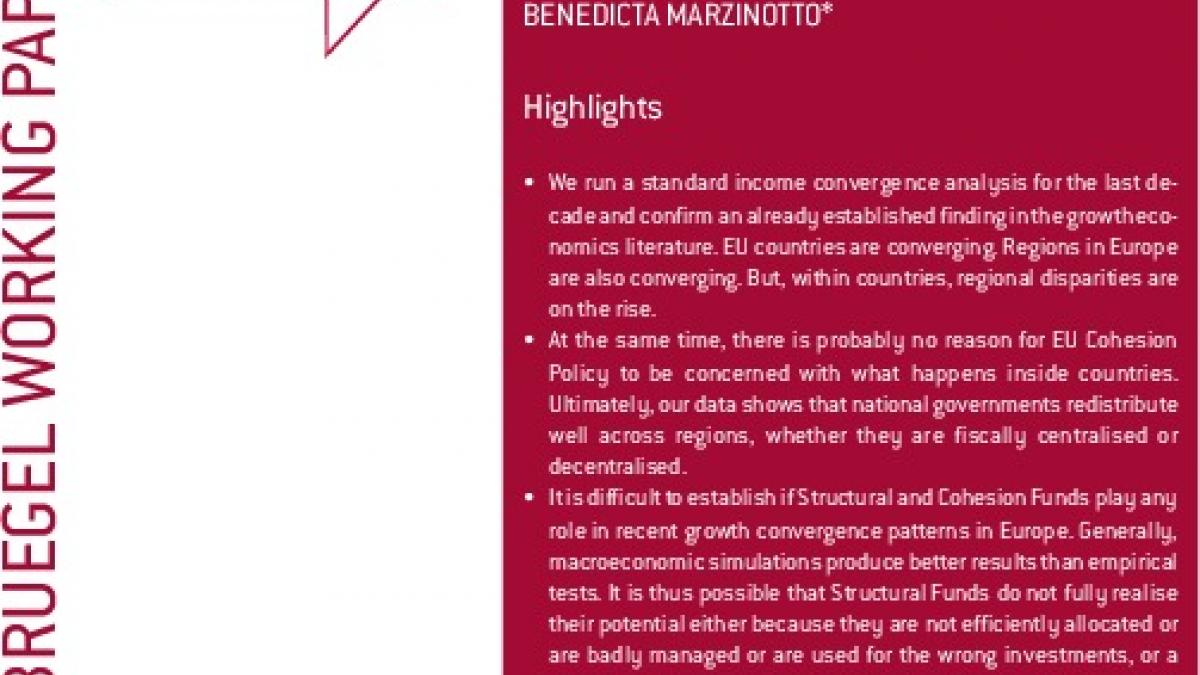The growth effects of EU cohesion policy: a meta-analysis
EU countries are converging. Regions in Europe are also converging. But, within countries, regional disparities are on the rise. There is no conclusiv

We run a standard income convergence analysis for the last decade and confirm an already established finding in the growth economics literature. EU countries are converging. Regions in Europe are also converging. But, within countries, regional disparities are on the rise.
At the same time, there is probably no reason for EU Cohesion Policy to be concerned with what happens inside countries. Ultimately, our data shows that national governments redistribute well across regions, whether they are fiscally centralised or decentralised.
It is difficult to establish if Structural and Cohesion Funds play any role in recent growth convergence patterns in Europe. Generally, macroeconomic simulations produce better results than empirical tests. It is thus possible that Structural Funds do not fully realise their potential either because they are not efficiently allocated or are badly managed or are used for the wrong investments, or a combination of all three.
The approach to assess the effectiveness of EU funds should be consistent with the rationale behind the post-1988 EU Cohesion Policy. Standard income convergence analysis is certainly not sufficient and should be accompanied by an assessment of the changes in the efficiency of the capital stock in the recipient countries or regions as well as by a more qualitative assessment.
EU funds for competitiveness and employment should be allocated by looking at each region’s capital efficiency to maximise growth generating effects or on a purely competitive basis.